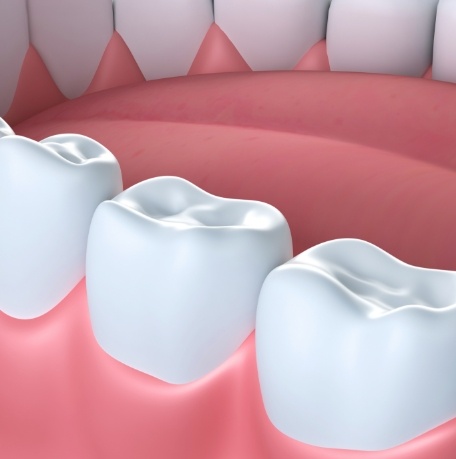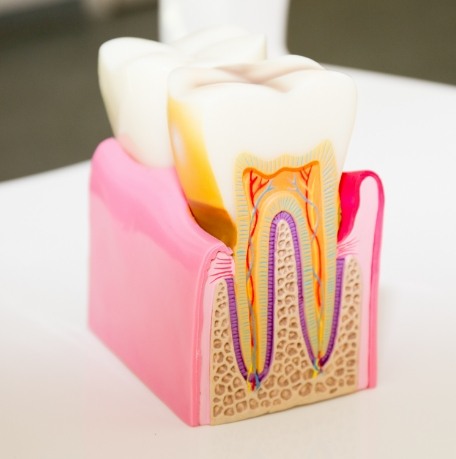At Soldotna Dental Arts, we provide care for the whole family, including its littlest members. Our goal is to prevent kids from developing dental problems altogether (or at least find and treat any issues early on, before they’ve caused too much damage). We also want to help your child feel comfortable in the dental chair, so it’s always easy for them to get the care they need for great oral health. If you’re looking for high-quality children’s dentistry, contact us anytime. Our trusted children's dentist in Soldotna, AK looks forward to meeting your child and helping them achieve a happy, healthy smile!
Why Choose Soldotna Dental Arts for Children’s Dentistry?
- Friendly, Compassionate Team With Many Years of Experience
- Kid-Friendly Environment For All Children
- Quality and Convenience For the Entire Family
When Should You Schedule Your Child’s First Dental Checkup?
In accordance with recommendations from the American Dental Association, we recommend scheduling the first dental checkup within 6 months of your child getting their first tooth or around their first birthday. While kids won’t get a cleaning or X-rays until they’re about 3 to 5 years old, Dr. Christensen will visually examine their teeth and jaws to look for signs of cavities and other issues (many children do great sitting on their parent’s lap during this exam).
You’ll also get valuable information about caring for your child’s teeth and gums at home to prevent or minimize oral health problems. And with our friendly, compassionate team, your child will have a great experience that makes dental care easy from the start.
Prevention For Baby Bottle Tooth Decay
“Baby bottle tooth decay” is a type of severe problem that can destroy all of a child’s front teeth – sometimes to the gumline. It can occur when babies or toddlers are given a bottle before bed that contains something sweet like formula, milk, or especially juice.
Healthy baby teeth are very important because they help kids eat, speak, and smile with confidence and also affect permanent teeth as well. That’s why Dr. Christensen always looks closely for baby bottle tooth decay and provides helpful prevention tips, including:
- Using a pacifier instead of a bottle or filling it with plain water if necessary.
- How to properly clean your child’s teeth and gums.
- The appropriate use of fluoride to strengthen their teeth and prevent decay.
Cavity Prevention for Older Children
Cavities are one of the most common childhood diseases, but they’re 100% preventable with regular checkups and good oral hygiene at home. When it comes to brushing and flossing, kids don’t have to be perfect but encourage them to be as consistent as possible. Minimize high-sugar foods and beverages like dried fruit, soda, juice, candy, cakes, cookies, etc. And when your child has something sweet as a treat, include it as part of a meal rather than as a snack in between meals.
Dental Sealants
Sealants are thin coatings of tooth-colored material that “seal” over the pits and grooves in the chewing surfaces of the back teeth. Since toothbrush bristles are too large to fit into these spaces, even good brushing habits can’t always prevent cavities. Sealants prevent cavity-causing bacteria from getting into the back teeth and have been found to prevent 80% of cavities in school-aged children.
We usually recommend sealants around age 5 or 6, or as soon as the first permanent molars come in. The procedure typically takes 10 to 15 minutes per sealant and doesn’t require being numbed.
Fluoride Treatments
Fluoride is a naturally-occurring mineral that prevents cavities. Similar to the way calcium strengthens the bones, fluoride strengthens the hard outer layer of the teeth called enamel. Professional treatments take just minutes and are usually done at the end of each checkup visit.
They’re so effective at preventing cavities that many dental insurance companies cover them at 100% until age 19 (some do for all ages). They know that fluoride treatments lead to less dental work down the road!
Pulp Therapy
The pulp is the innermost layer of a tooth and contains its nerve and blood supply. When it’s damaged by a deep cavity or a traumatic injury, it leads to severe toothache and pain.
Pulp therapy is similar to a root canal. It’s done to relieve your child’s pain and save their tooth from needing to be extracted. Here are some common signs that the procedure may be necessary:
- Chronic sensitivity to hot and cold temperatures
- Persistent pain
- Swelling around a tooth or a pimple-like bump on the gums








